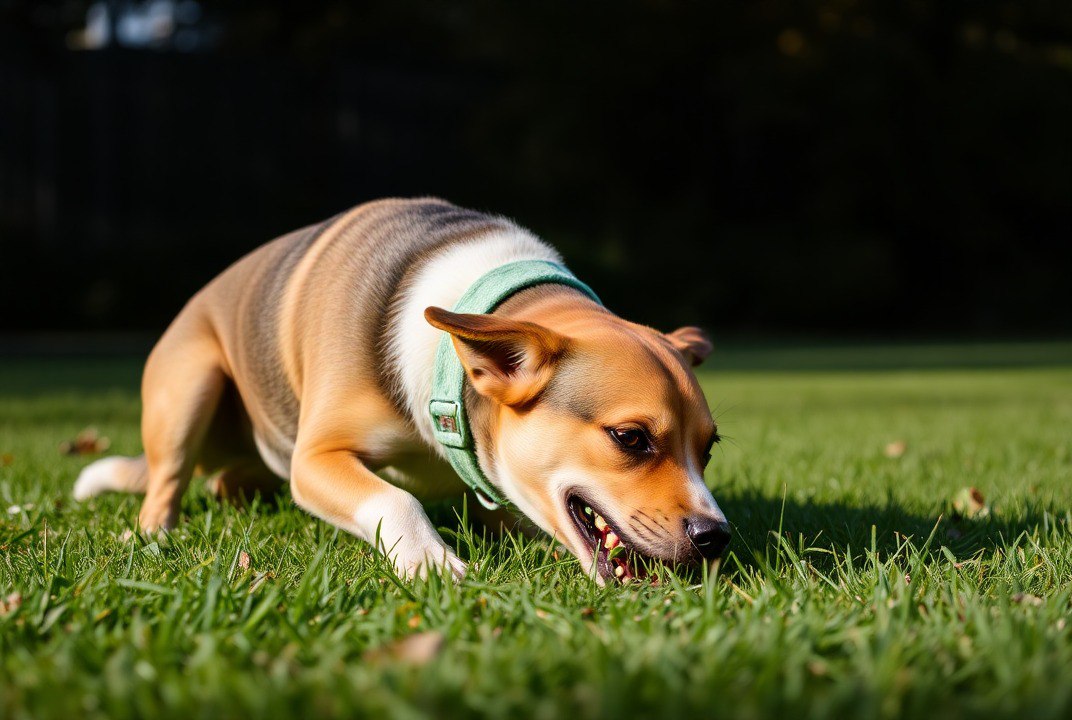
As a dog owner, you may have noticed your furry friend occasionally nibbling on grass during walks or in the backyard. While this behavior may seem strange or even concerning, it’s surprisingly common among dogs. But why do dogs eat grass, and is it something to worry about? Let’s explore the possible reasons behind this peculiar habit, along with practical solutions to address it.
—
The Common Theories: Why Do Dogs Eat Grass?
1. Instinctive Behavior
One popular theory is that eating grass is an instinctive behavior inherited from their wild ancestors. Wild canines, such as wolves, often consumed grass and plants as part of their prey’s stomach contents. This behavior might have been passed down to domestic dogs, even though they don’t need to hunt for food.
2. Dietary Deficiency
Some experts believe that dogs may eat grass to compensate for nutritional gaps in their diet, such as a lack of fiber or certain vitamins and minerals. Grass could provide a natural source of roughage to aid digestion.
3. Upset Stomach
Many dog owners report that their pets eat grass when they’re feeling nauseous. Grass-eating may trigger vomiting, helping the dog to relieve an upset stomach or get rid of something unpleasant they’ve ingested.
4. Boredom or Anxiety
Dogs often chew on grass when they’re bored, stressed, or anxious. This behavior could be a way to pass time, release pent-up energy, or cope with nervousness.
5. Taste or Texture
Some dogs simply enjoy the taste or texture of grass. The crunchiness or freshness of grass might appeal to their senses.
6. Exploration and Curiosity
Dogs explore their environment using their mouths, so grass-eating could be a way for them to investigate and understand their surroundings better.
—
Should You Be Concerned?
In most cases, occasional grass-eating is harmless. However, there are instances when it could be a cause for concern:
1. Frequent Vomiting: If your dog vomits frequently after eating grass, it could indicate a more serious underlying issue, such as gastrointestinal problems.
2. Pesticides and Chemicals: Grass treated with pesticides, herbicides, or fertilizers can be toxic to dogs.
3. Parasites: Eating grass may expose your dog to parasites, such as roundworms or hookworms.
4. Obsessive Behavior: If grass-eating becomes compulsive or excessive, it may signal stress or a behavioral issue.
If you notice any of these warning signs, it’s best to consult your veterinarian to rule out health concerns.
—
Solutions: How to Manage Grass-Eating Behavior
1. Ensure a Balanced Diet
– Provide your dog with high-quality, nutritionally balanced food that meets their dietary needs.
– Consider adding fiber-rich vegetables like carrots, green beans, or pumpkin to their meals.
2. Regular Vet Check-Ups
– Schedule regular veterinary visits to monitor your dog’s health and rule out any underlying issues.
– Discuss any concerns about grass-eating behavior with your vet.
3. Provide Mental and Physical Stimulation
– Engage your dog with toys, games, and regular exercise to prevent boredom.
– Puzzle toys or treat-dispensing toys can keep their minds occupied.
4. Safe and Chemical-Free Grass
– If your dog enjoys eating grass, ensure the grass in your yard is free of pesticides, herbicides, and fertilizers.
– Avoid allowing your dog to eat grass in public places where it may be treated with chemicals.
5. Train Them to Avoid Grass
– Teach your dog commands like “leave it” or “no” to discourage grass-eating during walks.
– Use positive reinforcement to reward them for redirecting their attention.
6. Provide Chewing Alternatives
– Offer safe and healthy chew toys or treats to satisfy their chewing instincts.
– Dental chews can also promote oral health while keeping them entertained.
—
When to Visit a Veterinarian
While grass-eating is generally not dangerous, you should visit a veterinarian if:
– Your dog vomits frequently or shows signs of lethargy.
– They experience diarrhea or loss of appetite.
– Grass-eating becomes excessive or obsessive.
– You suspect they’ve ingested harmful chemicals or parasites from the grass.
Early intervention can help address any potential health issues and ensure your dog stays happy and healthy.
—
Conclusion
Grass-eating in dogs is a common behavior with a variety of possible reasons, ranging from instinctive habits to dietary needs or boredom. While it’s usually harmless, it’s essential to monitor your dog’s behavior and take steps to ensure their safety. By providing a balanced diet, regular vet care, and plenty of mental and physical stimulation, you can help minimize this behavior and keep your furry friend healthy and happy.
Remember, every dog is unique, and understanding their specific needs and habits will go a long way in ensuring their well-being. If you ever feel unsure about your dog’s grass-eating behavior, don’t hesitate to consult your veterinarian for professional advice. After all, your dog’s health and happiness are worth every effort!
